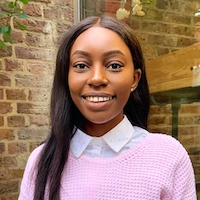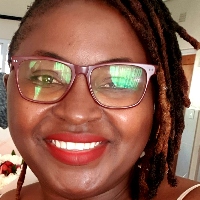GlobalGiving spoke to Restless Development about its latest State of Youth Civil Society Report, “Young, Feminist and Fearless: Holding the Line.” Restless Development’s Yande Kalengo and Maria Malomalo share what the report reveals about the state of young feminist movements globally.


A: Restless Development is a nonprofit global agency that supports the collective power of young leaders to create a better world. We have a physical presence in India, Nepal, Sierra Leone, Tanzania, Uganda, Zambia, and Zimbabwe through a network of nationally governed hubs. We also work with thousands of youth organizations all over the world.
We aim to be feminist, inclusive, and anti-racist in all that we do—guided by our Power Shifting Checklist. Our approach is made up of tried and tested methodologies, including youth-led research, youth power hacks, community-led mobilization, youth-led accountability, advocacy, and leadership programs. All our work is context-specific and designed by and for young people.
A: The State of Youth Civil Society is Restless Development’s annual flagship report, which takes stock of the work done by global youth civil society, highlighting both challenges and opportunities with a different theme each year. It’s more than a piece of research; it is a call to action to galvanize recognition of and support for youth-led movements and civil society organizations. This year, we focused on young feminist movements.
A: What was most surprising was the personal sacrifice many young feminists make to challenge autocracy and defend democratic principles. One respondent reported having to carry vinegar in her purse during protests, to protect herself from the effects of being tear-gassed, and a first aid kit in case of injuries. This is the reality for most young feminists facing the rollback of human rights across the world. It is increasingly difficult and unsafe to even declare that you are a feminist. This particular case brought to the fore the mental health toll that feminist mobilization has on young feminists operating in autocratic environments and the need for a broader discussion on how to safeguard their mental well-being and security.
A: We need to trust young feminist movements. Instead of speaking for them, we should support them to speak for themselves. Organizations also need to co-create solutions with young feminist movements. We need to advocate for more unrestricted funding that takes into account self-care and safety initiatives. We need to be the activists for the activists and create room for their voices to be prioritized in decision-making spaces and not as an afterthought or add-on.
True allyship means recognizing your power and privilege as an organization and working collaboratively and intentionally to dismantle the systems that perpetuate inequality.
How can we fund feminist movements better, how can we support them with the tools and resources to ensure they are institutionally sound? All these are areas we, as allies, can work on to build allyship and partnership.
A: Nonprofits need to work more collaboratively and identify a wide range of allies—including those from outside of the sector. Speaking with a strong collective voice is really important and can help advocate for change. We’re seeing some really interesting shifts in philanthropy right now—particularly around the need for flexible funding—and pressure from nonprofits is playing a major role in helping donors understand why this is so important. Participatory grantmaking and flexible funding practices are definitely moving in the right direction, but we want to see it happening faster.
In our research, young feminists call out what they perceive to be outdated approaches to impact and a lack of understanding from funders about what their movements need to succeed—and, indeed, what success looks like! We need more dialogue with funders to help them understand what impact in this space could look like, and then work together to redesign the systems to enable it—with a focus on empathy, flexibility, and kindness.
A: Feminist movements are evolving, and given the difficult contexts they work in, they can only get stronger with our support and allyship. The world is riddled with inequality, and feminist movements are positioned at the heart of speaking truth to power, advocating for an equal and just world where every human being is accorded the same human rights.
It gives us hope that feminist movements are holding the line because their success means we will have achieved a vision of equality and sustainable development that includes true power shifting and the dismantling of old power structures. I feel hopeful that organizations can adapt their methods, learning from a feminist approach that includes our collective self-care and well-being.
A: The growing understanding that the world is changing and we cannot deliver on our development agenda without also shifting power. We believe the world is really beginning to listen now. Take, for example, the recent landmark ruling in Montana in the United States, where the court found that young people have a constitutional right to a healthy environment and that the state must consider potential climate damage when approving projects. Young people affected by the wildfires have also enforced their constitutional right to a clean and healthy environment, and this was upheld in the courts of law.
Community-led movements are born out of being affected by an issue and collectively coming together to co-create solutions. I am encouraged and inspired by signs that young people at the forefront of these movements around the world are being listened to. Let’s continue our support!
Find exactly what you're looking for in our Learn Library by searching for specific words or phrases related to the content you need.